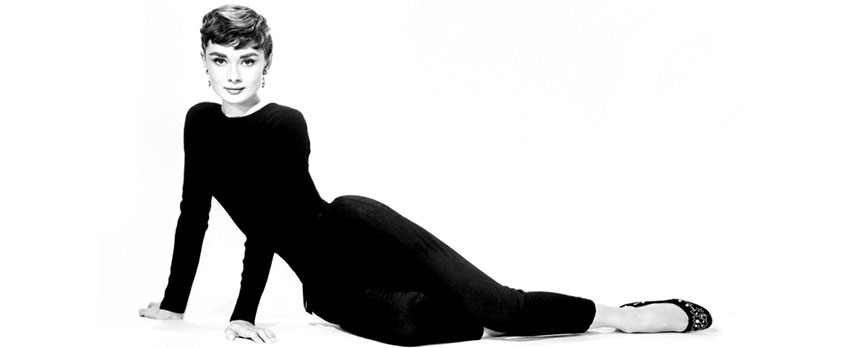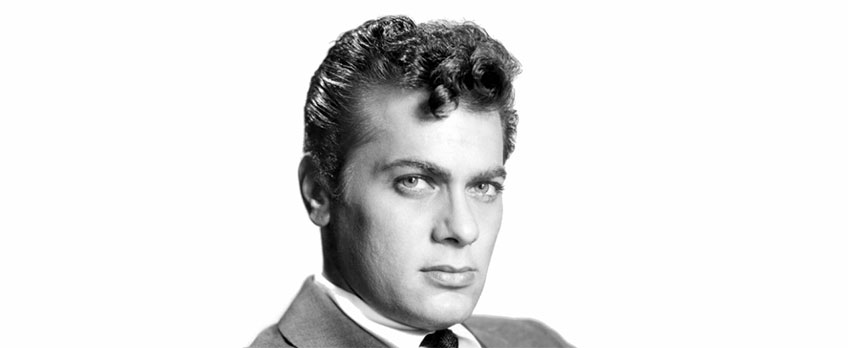Interested in writing for our blog? Send your pitches to editor@miff.com.au.
Adrian Wootton Answers Five Questions

ADRIAN WOOTTON TALKS TINSELTOWN TRAILBLAZERS
Former London Film Festival and British Film Institute director Adrian Wootton returns exclusively to Melbourne for another series of his celebrated Illustrated Film Talks.
This year he's focusing on Tinseltown Trailblazers from the turbulent 1950s. With tickets now on sale, we caught up to ask him a few questions about the period and it's stars.
Q1. Your lecture series this year is focused on performers who were trailblazers within Hollywood at the end of the Golden Age. What were the politics like at the time that encouraged the emergence of this different type of star?
The post-war world was very different and, with major social change beginning to ripple through, especially, American society (with the emergence of civil rights movement, popular psychology/ psychoanalysis, Teenage /pop culture, sexual freedom, feminism etc), this was reflected in the kind of performers that began to appear. Stars emerged whose influences were different, who developed their skills in a different way (particularly with method school of acting) and represented new younger audiences who shared their liberal politics, less conservative conformist behaviour and sense of independence. Marlon Brando epitomises all of these qualities as someone who redefined screen acting and male stardom in everything from On the Waterfront to The Godfather whilst being a vocal supporter of the civil rights movement.
Q2. One of your lectures is on Sidney Poitier for the trail he blazed for black actors in America. This is obviously an area where Hollywood still has room to improve, but what do you think was Poitier’s most significant achievement in helping to get more black stories on screen?
Sidney Poitier is a hugely important performer, star, activist and humanitarian. For a black male actor practically everything he did in Hollywood cinema broke new ground. Ultimately his talent and intelligence, allied to real bravery in shouldering the burden of being the first genuinely famous and popular black star watched by mainstream black and white cinema audiences (from Blackboard Jungle to In the Heat of The Night and beyond), changed not only US film but cinema the world over forever. He confronted racism, he worked for the civil rights movement and not only acted but he also became a very successful filmmaker directing films as diverse as Buck and The Preacher and Stir Crazy. Thus, Poitier set a precedent and created a role model that others would follow and it is no accident that just about every notable black actor and director after him acknowledges his influence and their debt to him. That is why he is so important.
Q3. Audrey Hepburn is famous today as much for her movies as the way she used her star profile to draw attention to humanitarian issues around the world. What was it about Hepburn that made people listen when she began taking on these causes?
It’s difficult to exaggerate the level of stardom that Audrey Hepburn reached and her image created an aura of fame and celebrity that few have ever emulated. From Roman Holiday through Breakfast at Tiffany’s to My Fair Lady, her films made her incredibly popular and an icon who changed Film and the fashion industry. She probably can be compared to, say, the British Royal Princess Diana in her allure and appeal to people. All this from a relatively short career and one where she guarded her privacy zealously. So when she decided (after her Film career was essentially at an end) to spend her time, energy and own money working tirelessly as a spokeswoman for UNESCO, raising awareness of the terrible humanitarian crises they seek to ameliorate, everyone listened. It was very apparent that this wasn’t a rich dilettante but a committed, empathetic and spirited woman, visiting war-torn countries and using every bit of her fame to help people - especially children.

Tony Curtis
Q4. Tony Curtis on the other hand seems little known for his post-film career. Tell us more about his practice as an artist in later life. Was he always a broad creative or was his career change inspired by his turbulent life?
I believe Tony Curtis was a significantly underrated actor and star. He was very good looking and naturally gifted as an instinctive performer who, as a working-class kid from a blue-collar background, made it against all the odds. And in a range of films (some of which, like Sweet Smell of Success and Some Like It Hot, are film masterpieces) demonstrated his abilities as a serious actor and fine light comedian. Truthfully, he never had a “post-film career” as he carried on acting until a few years before his death - and in things like Insignificance and the stage musical version of Some Like it Hot he showed that he had lost none of his abilities. But in the 1970s, as roles became more variable in quality and frequency and his own personal problems increased, he turned increasingly to painting as a fresh form of creative expression. He took Art very seriously, was dedicated and prolific in its production and his work was exhibited widely and sold all over the world.
Q5. Who are some contemporary screen performers you think are today acting as trailblazers in Hollywood and beyond?
Comparing the trailblazers in these talks to contemporary performers is difficult because so much has changed about both society and the Movie Industry and often it might be artists or performers in other mediums (such as music stars) or even TV presenters (think Oprah Winfrey perhaps) who may have had a more significant impact than a particular actor. Nevertheless it’s clear if you look at the work of Daniel Day Lewis, Gary Oldman or Sean Penn, their risk-taking in terms of performance is very much in the spirit of Brando. As is the work of Denzel Washington or Halle Berry or Viola Davis (also acknowledging Poitier ‘s giant shadow). And whilst there is no direct equivalent to Tony Curtis, his versatility can be seen on screen by someone like Robert Downey Jnr or Chris Pine. Audrey Hepburn is also completely unique but in using her fame for significant charitable causes Angelina Jolie is certainly carrying at least some of that baton forward.